What are the benefits of eating gluten-free?
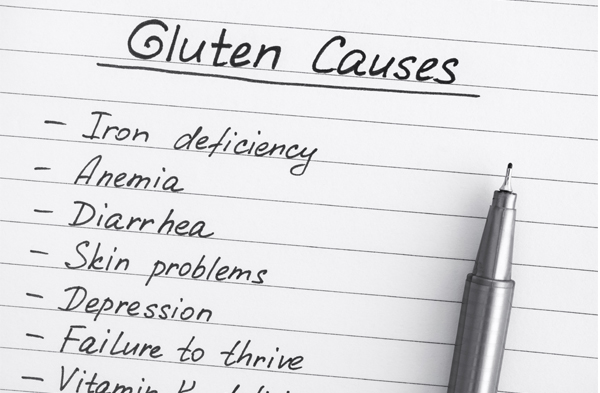
Gluten is a common protein found in a variety of grains, including wheat, rye and barley. It’s what gives bread its elasticity and enables it to hold its form, however, gluten is also considered to be the only protein that is completely indigestible, containing high amounts of amino acids like glutamine and proline.
This means that anyone can develop a sensitivity or intolerance to the protein, but perhaps the worst affected group is coeliacs. In sufferers of this particular disease, gluten upsets the lining of the small intestine and triggers an autoimmune response where immune cells start to attack the villi, finger-like protrusions that help your body to absorb nutrients.1
However, coeliacs aren’t the only group that have to watch out for gluten – sufferers of IBS might also want to reconsider their position on the protein too. Research has demonstrated that gluten sensitivity can play a role in certain IBS symptoms, with one study finding that 60% of the IBS participants tested positive for the coeliac disease gene while 12% of those that did not carry the gene still found their IBS symptoms improved on a gluten free diet.2
But what if you’re not intolerant or sensitive?
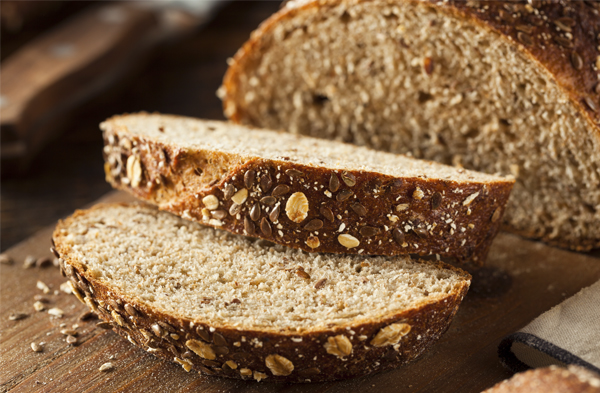
What if you’re not a sufferer of Non-Coeliac Gluten Sensitivity? Why would you feel motivated to adhere to such dietary restrictions if gluten isn’t an issue for your digestive system? Well, some people still seem to go gluten free but these are just a few of the more common reasons:
- Weight loss
- Skin problems
- Feeling bloated
- Feeling tired
- Improve heart health
You also have to consider that, although only 1% of the population are officially diagnosed with coeliac disease, it’s estimated that the number of those suffering from the disease that are undiagnosed far exceeds this number.
But, undiagnosed gluten sensitivities aside, is going gluten free a good way of solving these problems? Well, let’s start with your heart health – while gluten is usually found in heavily refined products that can impact your blood sugar levels, gluten itself has not been linked to any cardiovascular diseases in those that are not coeliac.3
Gluten’s presence in processed foods could also explain why some people lose weight after adhering to a gluten free diet – they’re not exposing themselves to same level of refined foods as before.
However, when it comes to skin the connection with gluten is a bit more complex. There is evidence that gluten intolerance and eczema may be linked, but again, if you’re not sensitive to gluten, there’s not much research to back up the idea that going gluten free will immediately solve your skin problems.
Finally, there are some experts that worry that going gluten free might cause more problems than benefits for those that are not sensitive to gluten. This is because, while gluten does linger in a variety of refined carbohydrates like white bread and pasta, it also exists in healthy wholegrain foods, which are rich in B vitamins and dietary fibre.
As a result, those that go gluten-free expecting to improve their health sometimes end up suffering from nutritional deficiencies such as low levels of fibre.
Aren’t gluten-free products healthier?
In addition to the aforementioned health claims about going gluten free, there’s also the idea that gluten-free products are innately healthier compared to their shop bought counterparts which definitely isn’t always true. In fact research has indicated that there was little nutritional difference in gluten-free foods and sometimes they even contained higher amounts of salt and sugar!5 This is usually to achieve the same shape, texture and flavour as their gluten counterparts– gluten free doesn’t equate to guilt free unfortunately!6
So, while a gluten-free diet isn’t recommended for everyone, if you are one of the few that is considering going gluten-free from genuine health-related reasons, you will need to take these factors into account and try to find a way of increasing your intake of vital B vitamins and fibre.4
My top tips for going gluten-free
1 – Take advantage of gluten-free grains
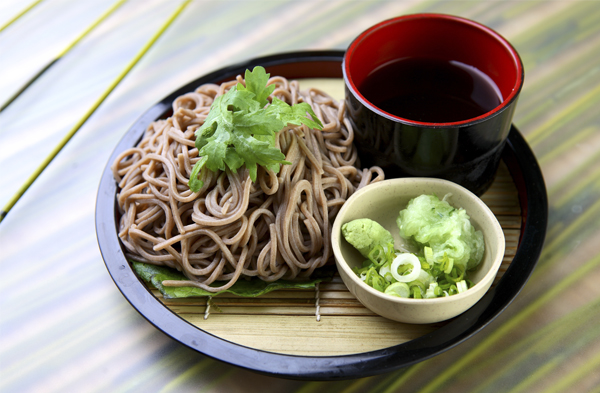
Not all cereals and grains contain gluten so my advice would be to take advantage of these foods. Quinoa, polenta, buckwheat and millet are naturally gluten free, and better yet contain a whole host of vitamins and minerals, like manganese, magnesium, vitamin B2 and dietary fibre. Including more of these foods in your diet should help to make up for the loss of nutrients you would have gotten from wholegrains.
You also have to consider that uncontaminated and unrefined oats are gluten-free and safe for most people who are gluten intolerant – just make sure to double check that they are gluten free before purchasing them! This is good news as oats are a great source of dietary fibre and are proven to help lower cholesterol, therefore improving your heart health!
Below are just a few of my favourite gluten-free recipes you might want to try at home.
Buckwheat & Coconut Bread
Quinoa Stuffed Avocados
2 – Know your alcohol
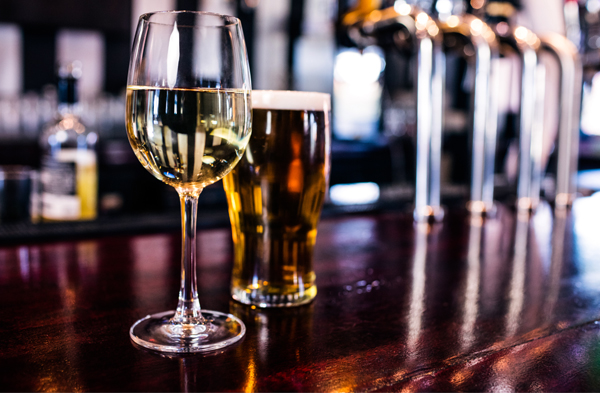
Here at A.Vogel, we’re not massive advocates of alcohol, but we do appreciate that, in moderation, there’s nothing wrong with enjoying the occasional glass of wine or pint of bitter.
The problem is that many traditional forms of alcohol, such as beer, larger and ale are all formulated from barley, and therefore contain gluten.
Fortunately, there are plenty of gluten-free alternatives on the market now and for the most part, wine is considered to be gluten free, alongside spirits such as rum, most ciders, potato vodka and the infamous tequila. As always, remember to drink sensibly – hangovers don’t care if you’re gluten free!
3 – Gluten can hide in unexpected places
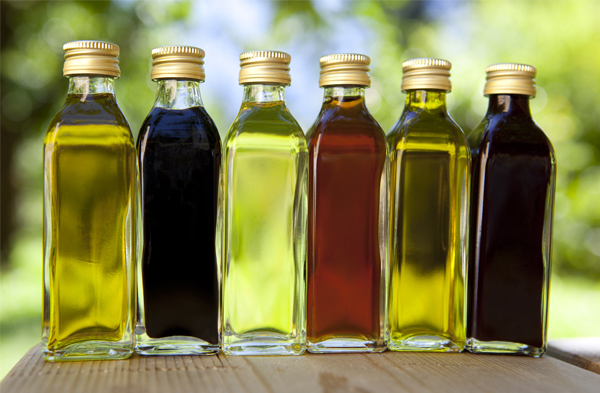
Bread, pasta and other grains might seem like an obvious place for gluten to lurk but what about salad dressings, soy sauce, veggie burger, supplements or even chips?
Getting savvy about reading the labels is crucial if you have coeliac disease or are going gluten free as gluten can be found in unexpected places, including your medication!
Some particularly unusual food products that contain gluten include certain flavours of ice cream, canned soup, seasoning mixes, sushi and pickles. However, food isn’t the only thing you have to worry about – supplements can also contain gluten and so can your beauty products!
4 – Remember, fruit and veg are naturally gluten free!
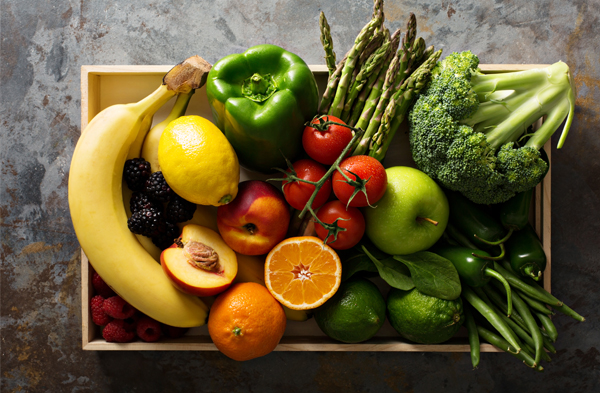
Almost all fruit and vegetables are inherently gluten free so I’d recommend making the most out of them. All of us should be striving to fulfil that 5 a day quota (or possibly 10 a day according to recent research!) for good reason.
Eating plenty of fruit and veg helps to ensure that you’re getting a steady supply of nutrients, including dietary fibre and healthy fats!
5 – You may want to speak to a nutritionist
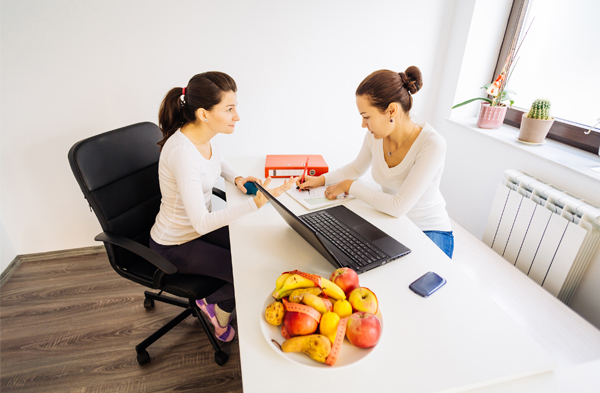
If you’re coeliac or considering going gluten free for other health reasons, it might be best to speak first to your GP and then to a nutritionist. A trained nutritionist will take into account your specific dietary needs and be able to offer tailored advice to ensure that you are going gluten free in a proper and healthy manner and that your nutrition needs are still being met, avoiding any deficiencies!
If you’re struggling to get in contact with a nutritionist, you could try contacting the British Association for Applied Nutrition & Nutritional Therapy, or BANT. They should be able to help you find a practitioner in your area and offer helpful advice.
1https://www.livescience.com/53061-gluten-free-diet-facts.html
2https://www.verywell.com/gluten-vs-irritable-bowel-syndrome-562696
3http://www.bmj.com/content/357/bmj.j1892
6https://www.today.com/health/5-things-you-didnt-know-about-gluten-free-diets-1D79842311





 Looking for our products in a store near you?
Looking for our products in a store near you?
